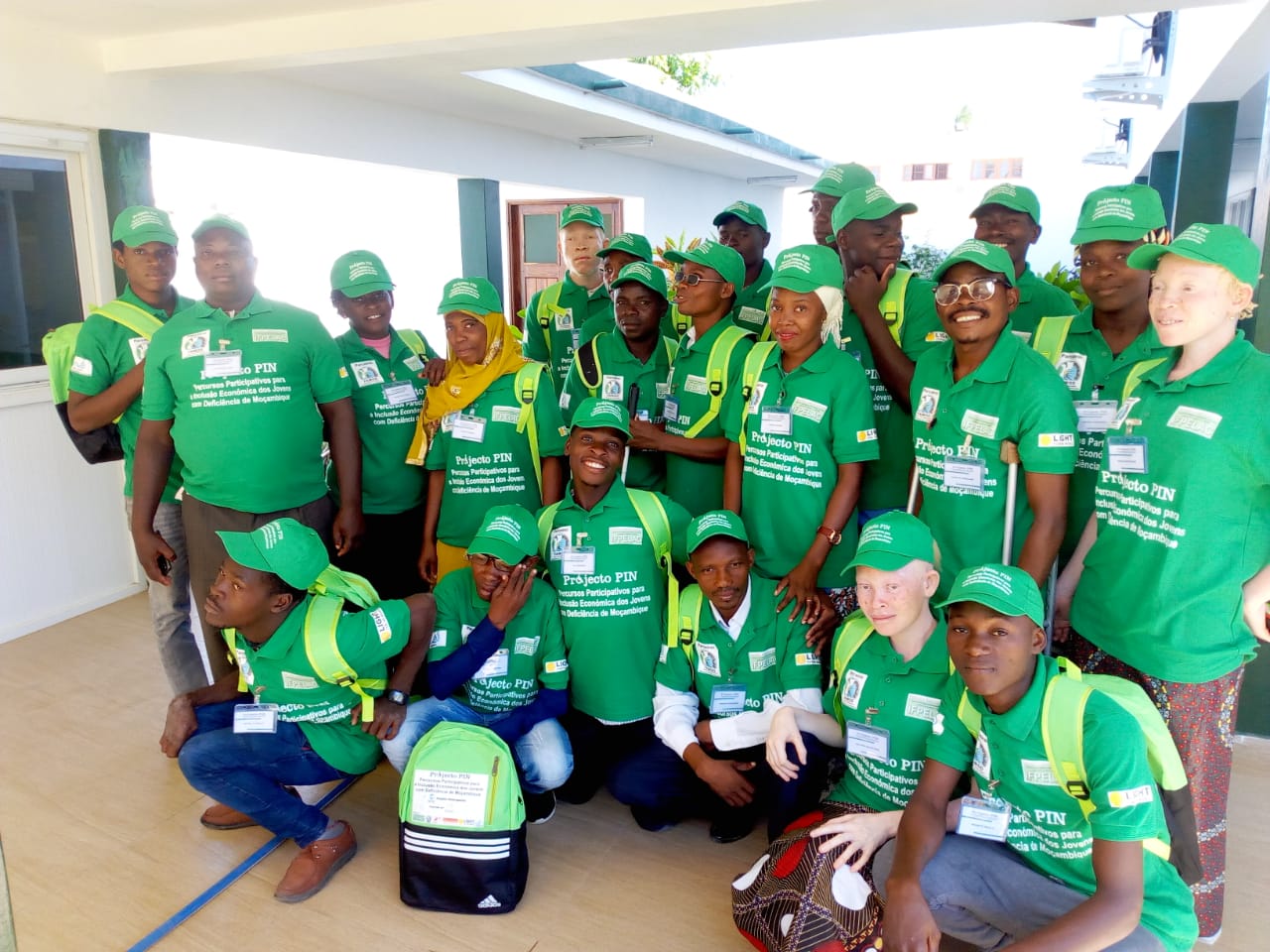In Mozambique, we work to strengthen the social and economic inclusion of persons with disabilities also through Emancipatory Research. The protagonism of persons with disabilities and their organizations is built by strengthening their capacities, thier ability to analyse and read the reality and the barriers that prevent full and effective participation in society.
Emancipatory Research to strengthen social and economic inclusion of persons with disabilities in Mozambique

Within the PIN project – Participatory paths for the economic inclusion of young people with disabilities in Mozambique, funded by AICS (Italian Agency for Development Cooperation) and led by AIFO, in partnership with Terres des Hommes and ISCOS, the ARCO Researchers, with the support of FAMOD (the Mozambican forum of organizations for people with disabilities), have carried out a training on Emancipatory Research involving three groups of young people with disabilities in the urban areas of Maputo, Beira and Pemba.
The information collected during the implementation of the Emancipatory Research will be used to better develop the other activities of the project that are focused on Professional Training, Work, Technologies for Inclusion and Communication.
In Mozambique, as in many other countries, people with disabilities have great difficulties accessing the labour market. Nevertheless, data on the factors that contribute to increase (or limit) this exclusion are scarce. It is precisely for this reason that the ARCO Researchers have chosen to train young people with disabilities in social research methods.
The decision to use the innovative instrument of Emancipatory Research is twofold: on the one hand it aims at filling some knowledge gaps on the disability phenomenon; on the other hand, it aims at directly involving persons with disabilities, allowing them to be active subjects, and not only object, of social research. Carrying out an Emancipatory Research gives factual application to the slogan “Nothing about us, without us” of the movement of persons with disabilities and transforms it in a mode of action also in the field of knowledge production on the “disability” phenomenon.
What is an Emancipatory Research?
Emancipatory Research is a participatory tool for promotion and empowerment for marginalized groups or people at risk of marginalization. This type of approach finds its roots in the analysis of power relationships incorporated in research activities. These types of analysis challenge the traditional relationship between researcher and object of research with the ultimate goal of making the most of the analytical skills of marginalized subjects.
People participating in an Emancipatory Research process faces different types of change. First of all they acquire practical knowledge on “how to do research”. Secondly, they have the opportunity to exercise their analytical skills in a collective and shared way. In this way they become aware of their condition as individuals and as part of a group, for example they gain awareness on their rights and how these are respected and actually exercised. Finally they undergo a process of collective and individual empowerment resulting in a greater control over the mechanisms of knowledge production and information analysis.
The training in Mozamqbique
The training on Emancipatory Eesearch carried out by ARCO Researchers therefore had the objective of bringing 60 young Mozambicans from the cities of Maputo, Beira and Pemba closer to the theoretical and scientific framework of disability and acquire the knowledge to build the necessary tools for research in a optics of co-creation. The training therefore was dvided into a theoretical part, with a focus on the Capability approach, the evolution of disability models, the UN Convention on the Rights of Persons with Disabilities; and a practical part that has allowed to co-create research tools and learn their use. For example, young people have developed and tested structured questionnaires for entrepreneurs, semi-structured interviews with training center staff and focus group facilitation in the context of simulations and pilot-tests.
As already emerged in the case of the Emancipatory Research carried out among women with disabilities in Palestine, the degree of satisfaction of young people turned out to be very high. Just as the enthusiasm and involvement with which the young people themselves are, to date, carrying out research though interviews with entrepreneurs and staff of training centres.
Read more on our Inclusive Development Unit